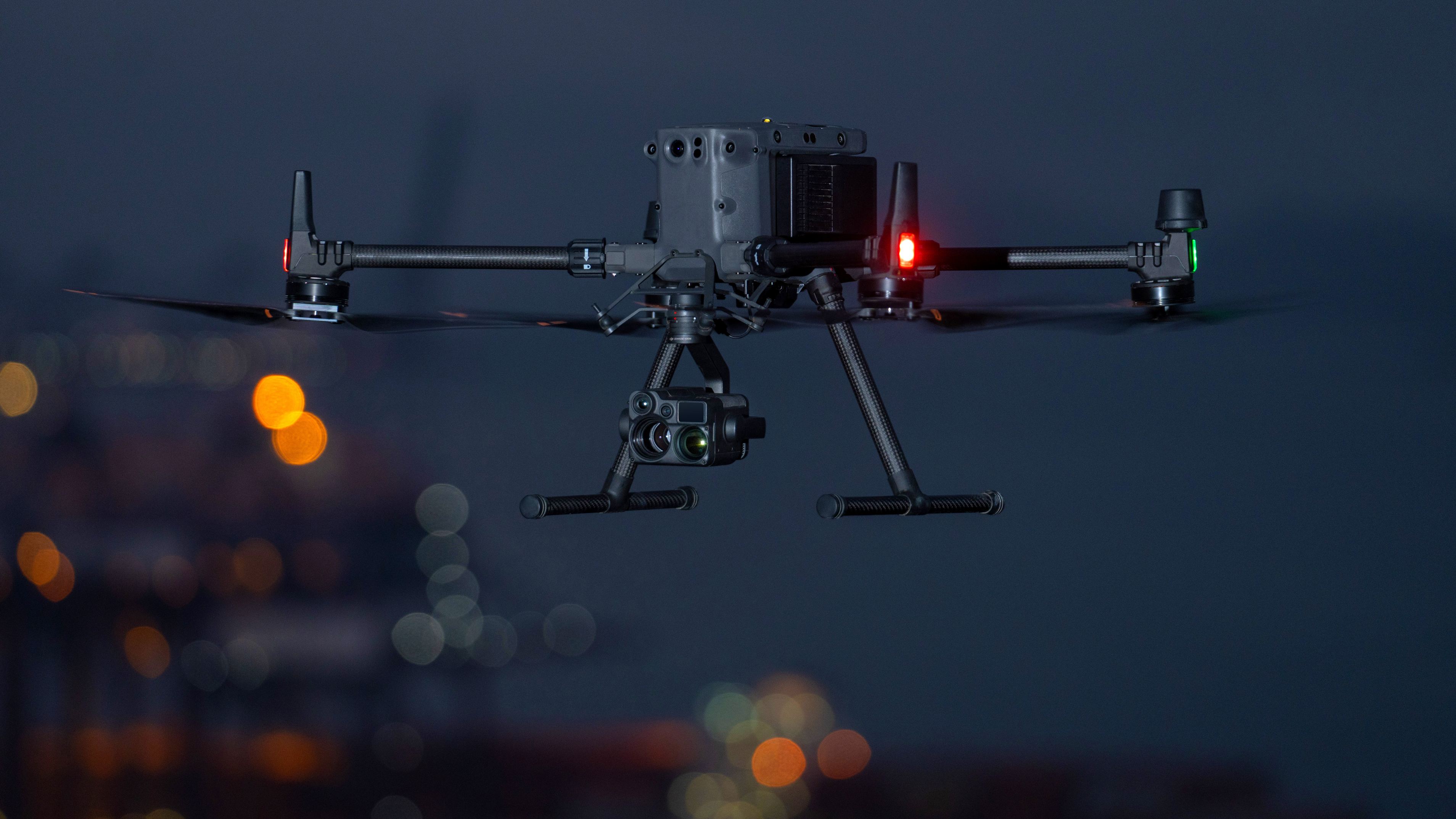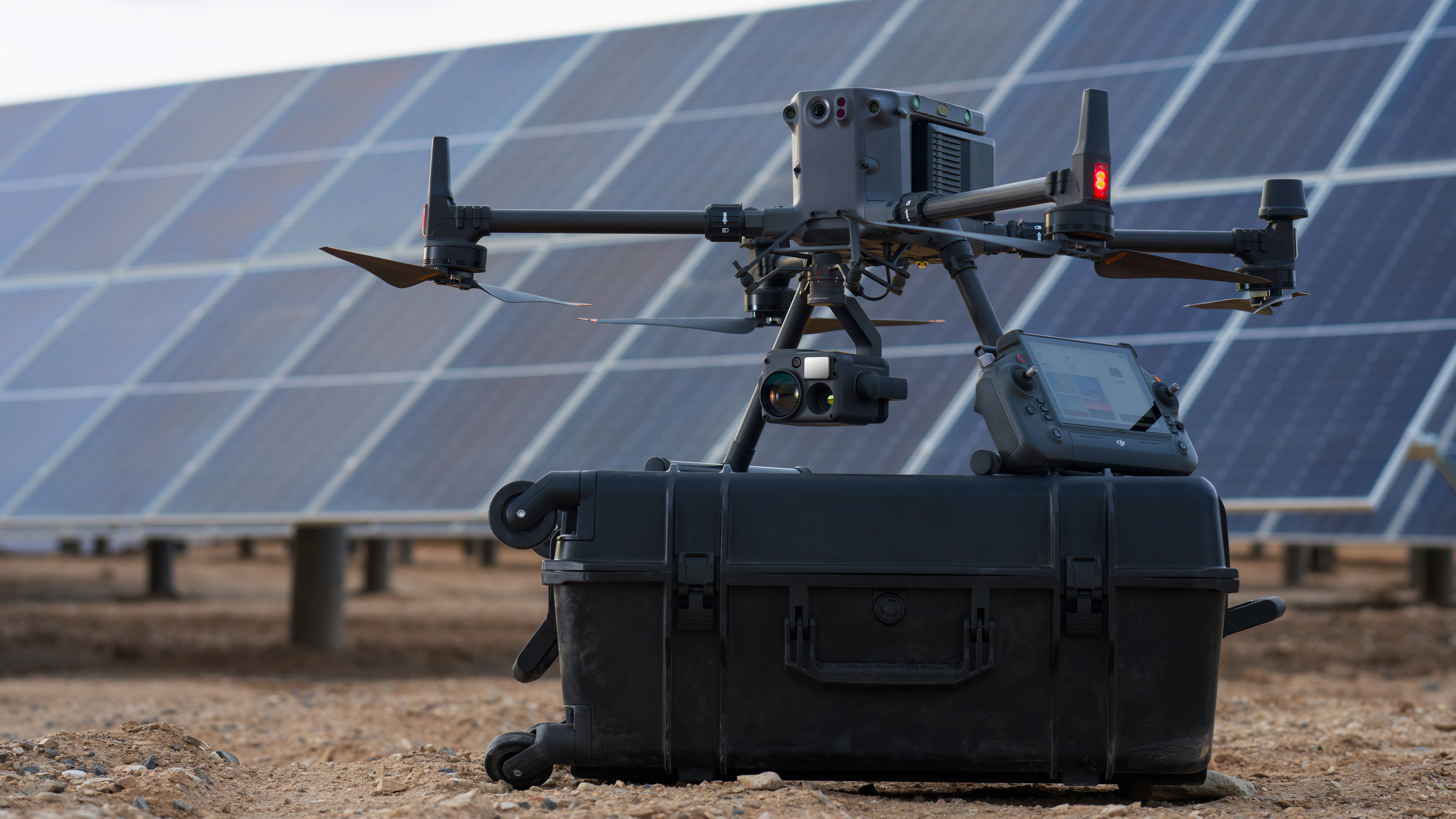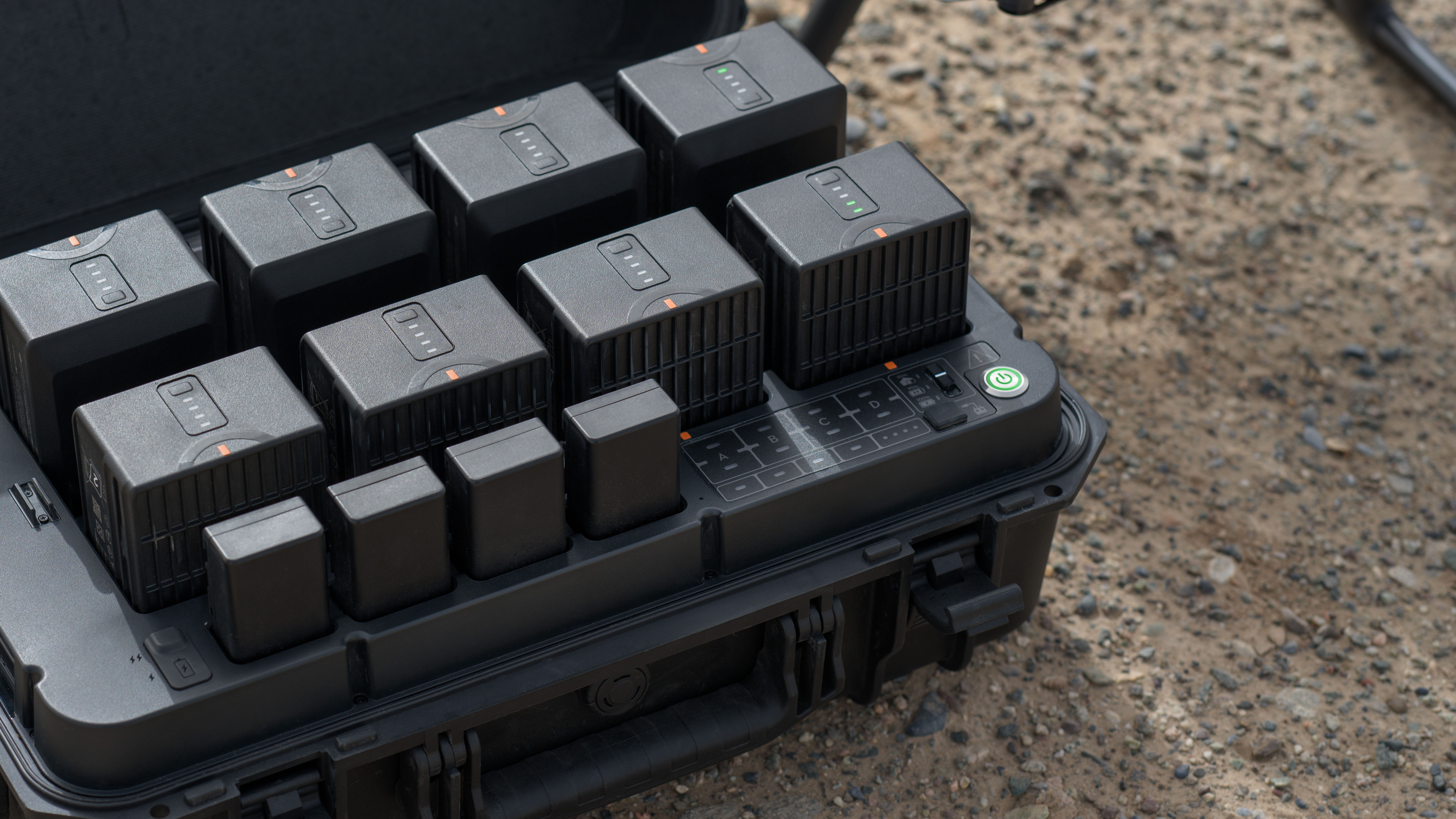
Leading drone firm DJI have announced a new Matrice 350 RTK, or M350 RTK, their latest flagship drone. The drone is designed for commercial clients in industries as diverse as public safety, energy, mapping, and infrastructure. It can take a number of different payloads, from thermal cameras to LIDAR mapping scanners.
“It’s great to see how commercial drone pilots around the world use DJI platforms to carry out their operations...,” said Christina Zhang, Senior Director of Corporate Strategy at DJI. “The new capabilities offered by the advanced technology of the M350 RTK enables operators to push these boundaries even further.”
Specifically, the M350 is an upgraded version of the M300 platform. Key improvements include better ingress protection, to IP55, a new generation of batteries that can cut costs, improved low-light capability, and extended range.

The drone uses DJI's O3 Enterprise transmission system, capable of handling up to three live 1080P video streams up to 20Km – 5km more than the M300. An example might be a pilot flying the drone through the First Person View (FPV) camera, while an operator directs an optical and thermal sensor unit to the subject of inspection. All three video streams come back at once, and with the M350 RTK the pilot can more comfortably operate in lower light than before with a new FPV camera – a similar improvement to that seen in the new Inspire 3.
The drone also boasts 6-direction binocular collision sensors and infrared object detectors. It retains the Pilot 2 features like mission planning, spot checking, and pinpointing targets or individuals from its sibling.
The DJI RC Plus, with a 7-inch screen, is the controller supplied as standard. A WB37 external battery can offer up to 6 hours of operation and the Pilot 2 app is built in.

Perhaps the most exciting aspect touted in DJI's announcement for many businesses will be the lower costs. The new TB65 batteries have a cycle count of up to 400 – double the previous TB60 – meaning the batteries can be expected to last for twice as many flights. They're also hot-swappable and a new BS65 charging station can help maintain their life and charge multiple sets on the move (fulfilling the same role the BS60 did for the M300's batteries).
In terms of payload, the M350 supports one or two downward, or one upward gimbals. Devices can include the familiar Zenmuse H20 series, P1, L1, and third-party devices including multispectral sensors and even gas detectors. Each has a purpose. The Zenmuse P1 is a 45 megapixel full-frame camera with 4.4μm pixels and a mechanical shutter designed for photogrammetry (mapmaking), for example.
DJI will be selling the drone directly from the DJI Store, and network of DJI Enterprise Dealers. The M300 was $13,700 so don't expect to budget less.







